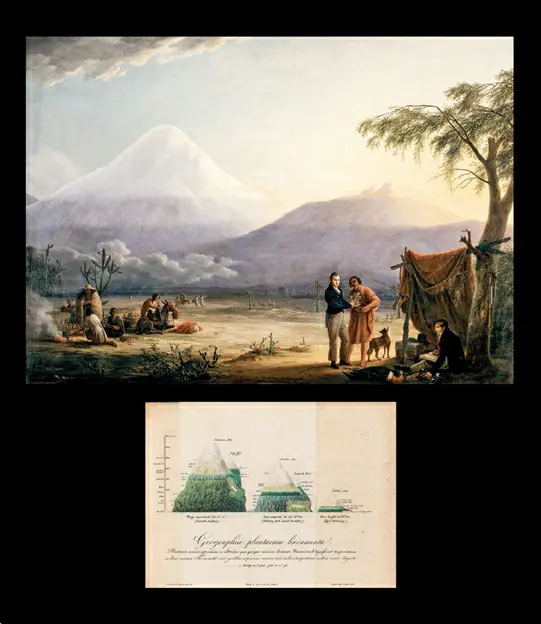The late eighteenth and early nineteenth centuries witnessed the emergence of Alexander von Humboldt, a figure often overlooked but crucial in shaping the environmental movement as we know it today. Humboldt, a polymath from a wealthy family, initially delved into botany, anatomy, geology, and mining, but his passion for exploration led him to the uncharted terrains of Venezuela, Colombia, Ecuador, and Peru.
During his expeditions in the early 1800s, Humboldt meticulously documented a myriad of plant, animal, and fossil species, alongside making groundbreaking observations in physical geography, meteorology, and the interconnectivity of ecosystems. His holistic approach to studying nature emphasized the intricate relationships among flora, fauna, climate, geology, and human activity.
Humboldt’s magnum opus, “Kosmos,” published initially in 1845, presented a revolutionary perspective on Earth as a network of interlinked ecosystems. His insights profoundly influenced eminent figures like Charles Darwin, Henry David Thoreau, and John Muir, cementing his legacy as a pioneer in environmental thought.
Despite the widespread adoption of his environmental concepts, Humboldt’s direct contributions have faded into obscurity. As Andrea Wulf poignantly notes, “Humboldt gave us our concept of nature itself,” yet ironically, his name has become overshadowed by the very principles he helped establish.

